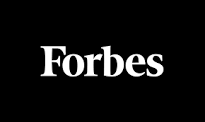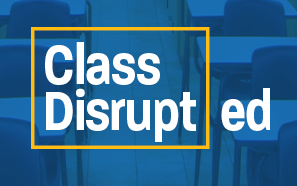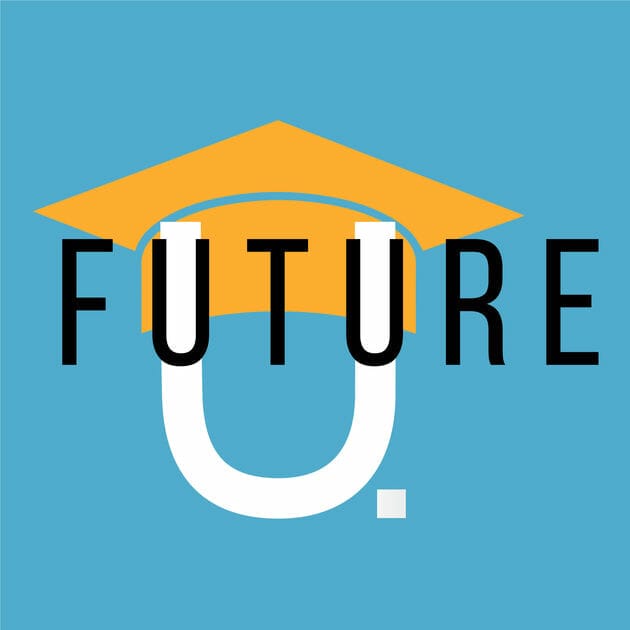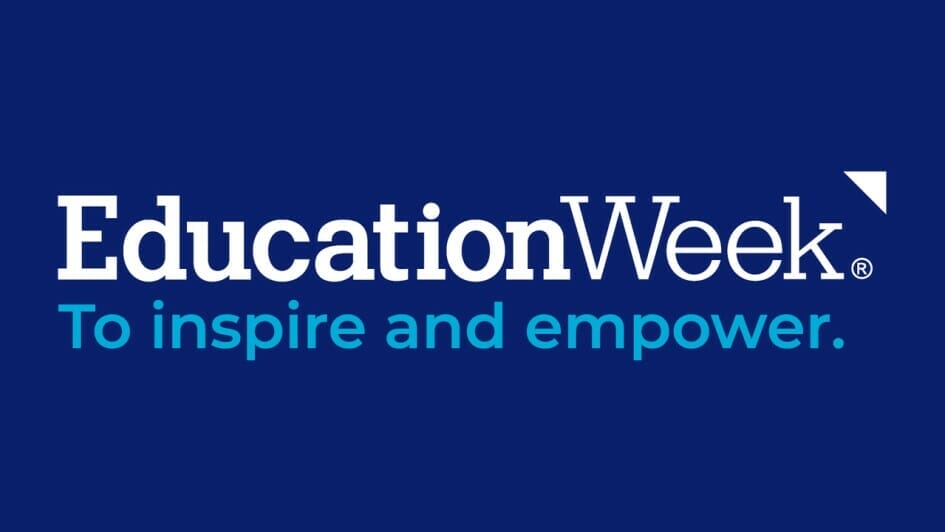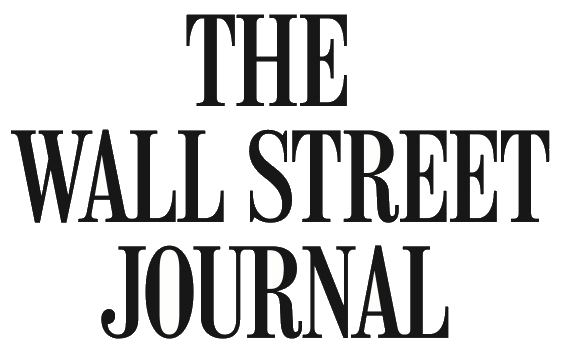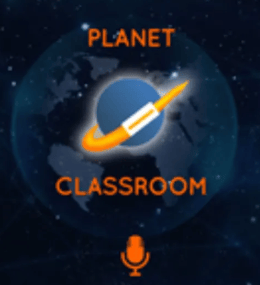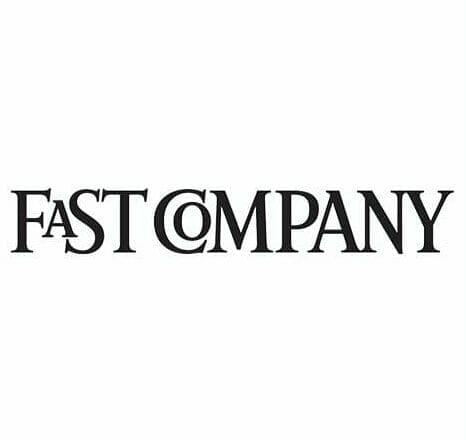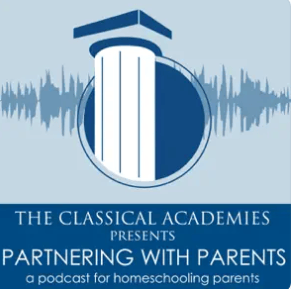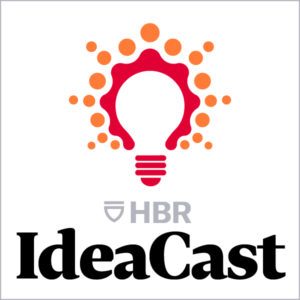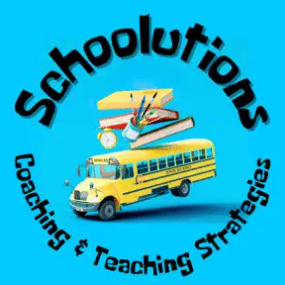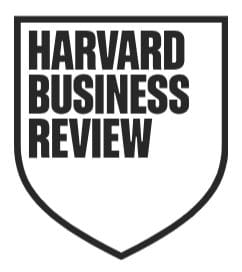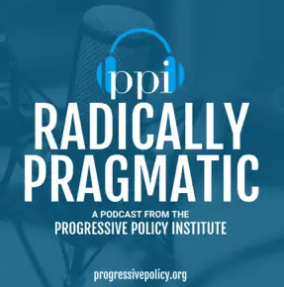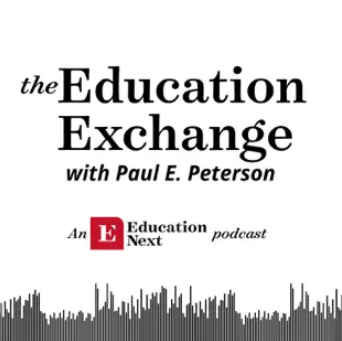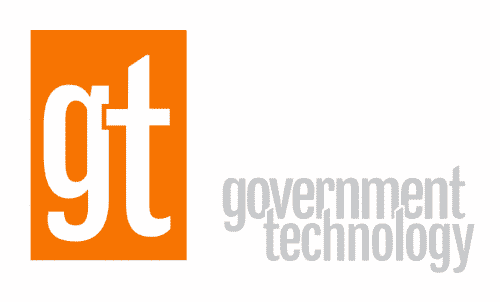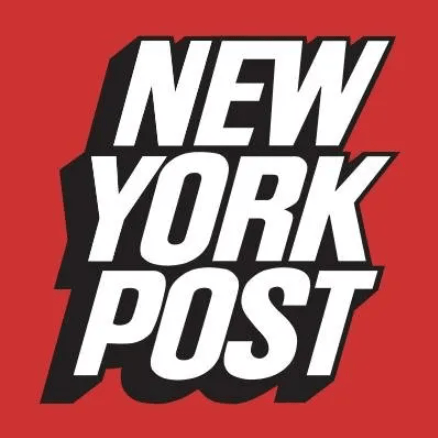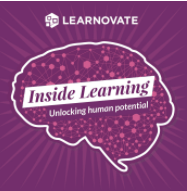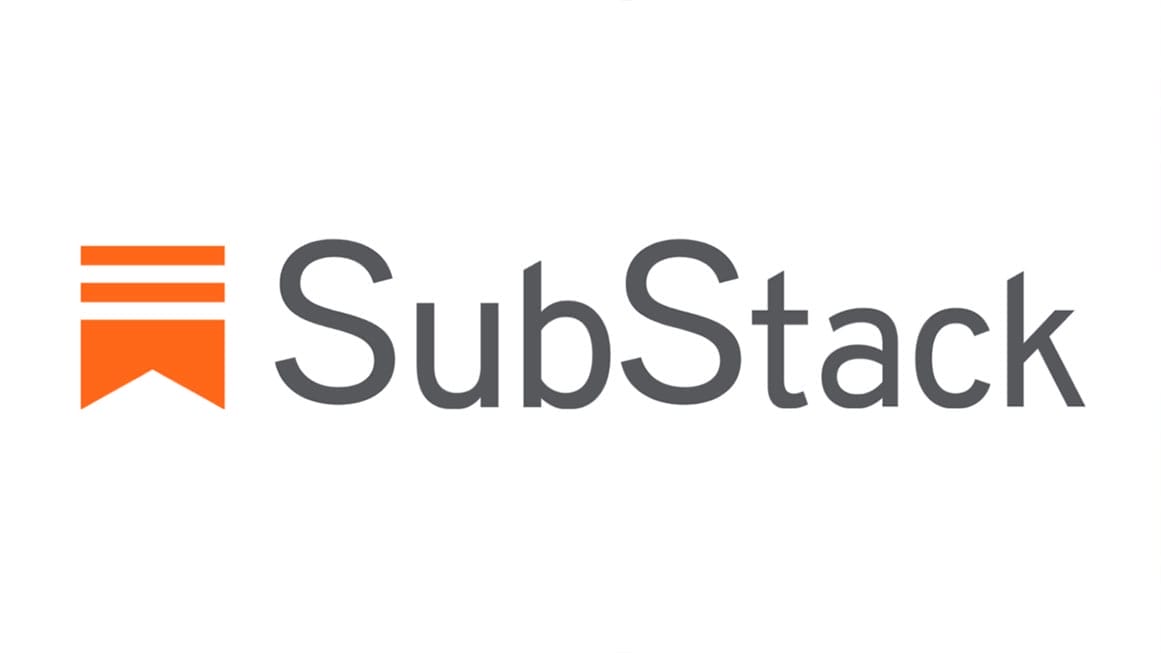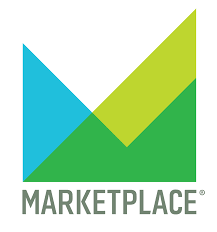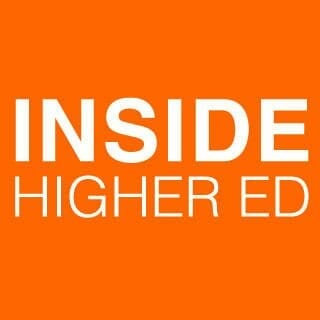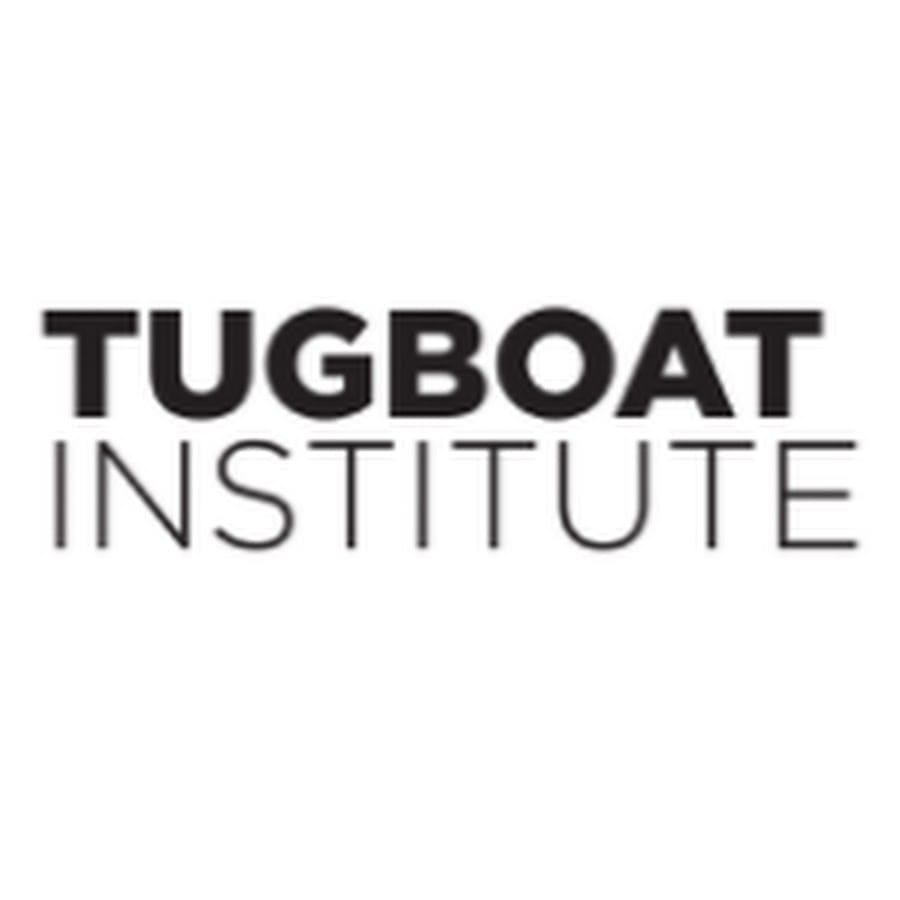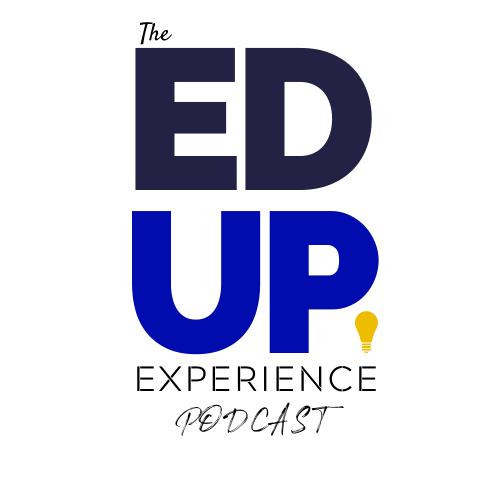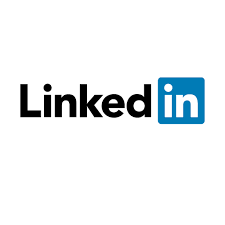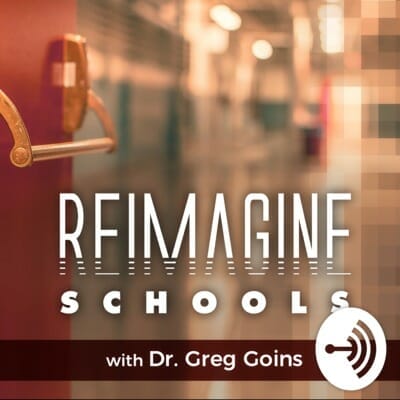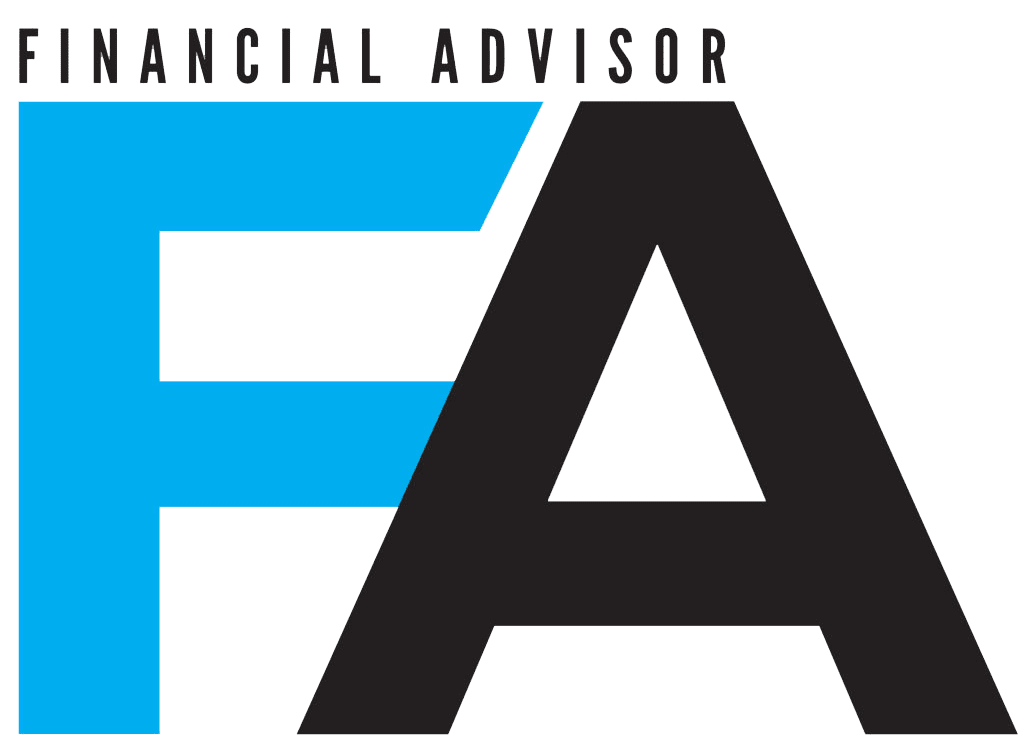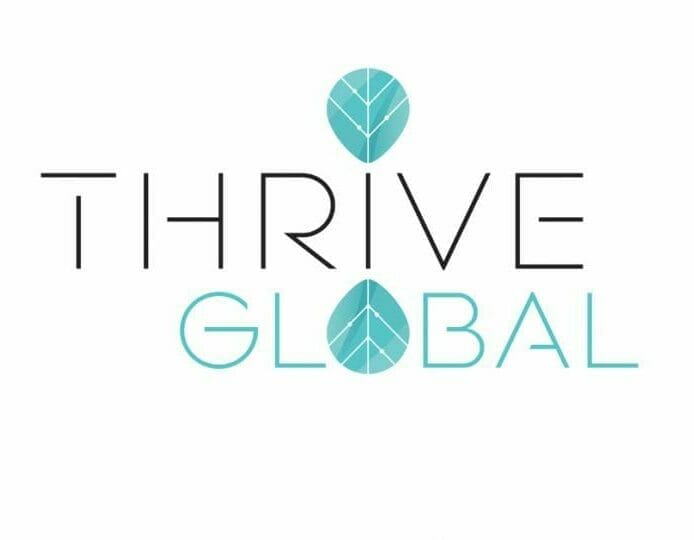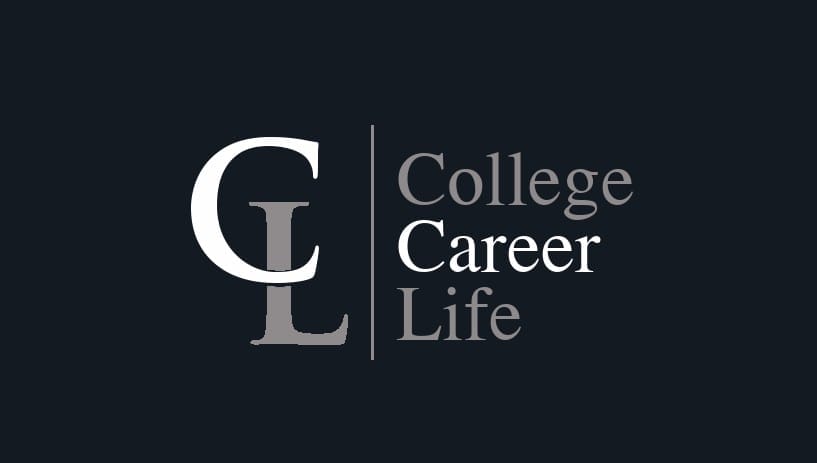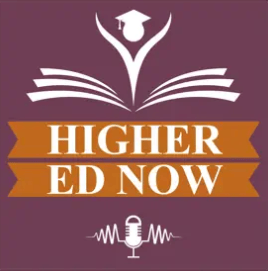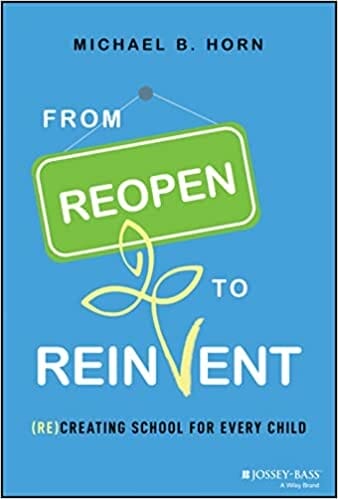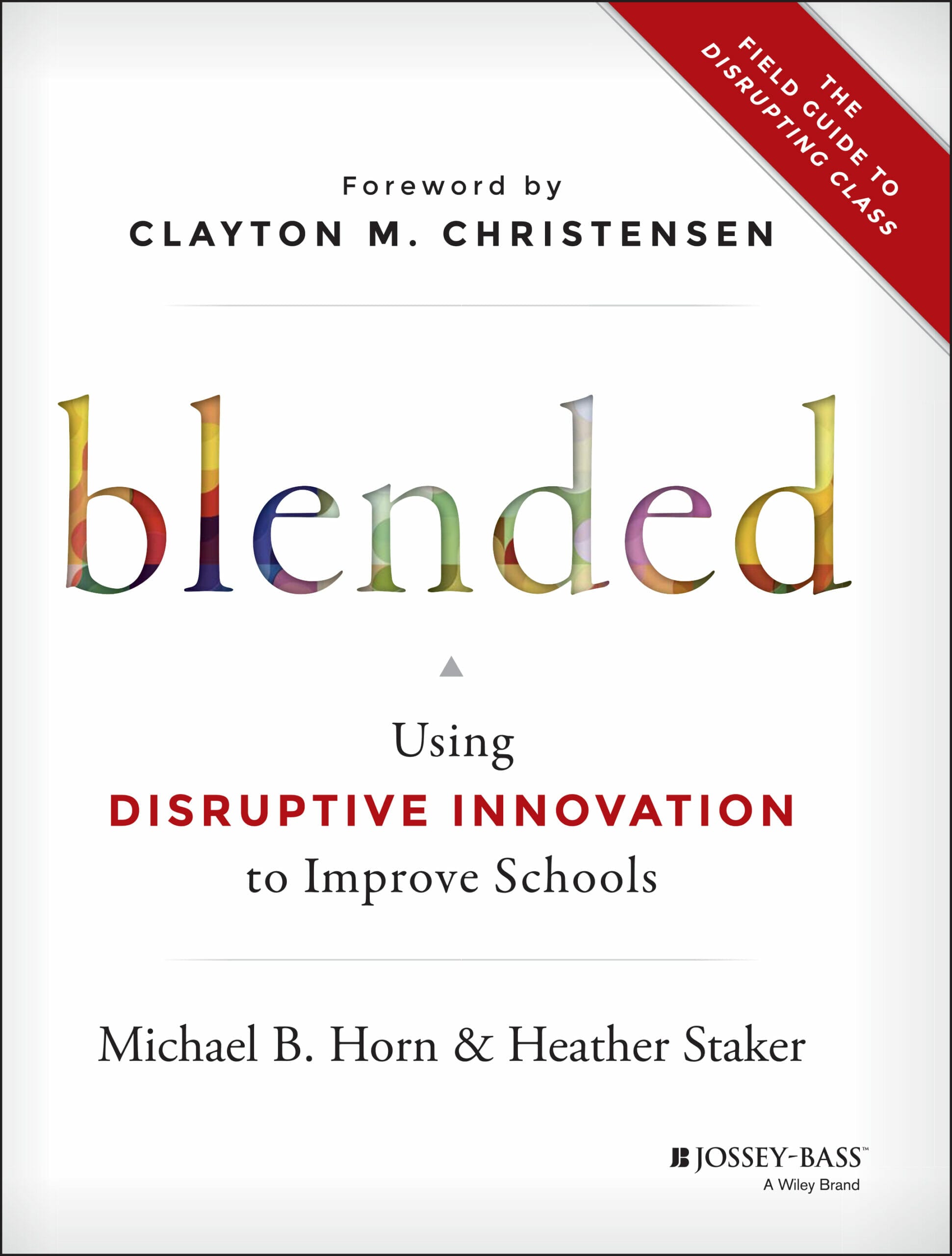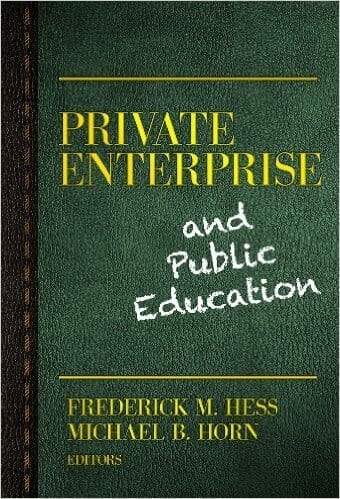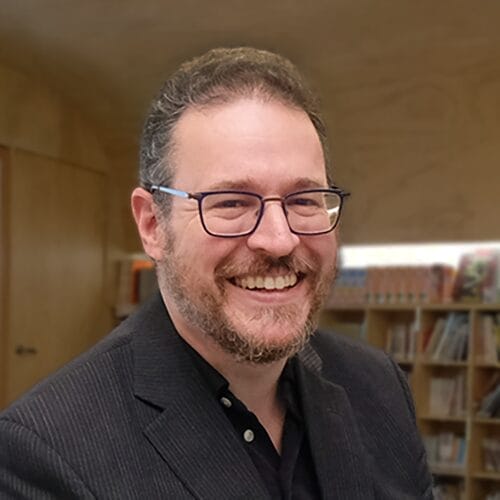Videos
Learn More About Michael B. Horn
Staggering new research shows that one in 16 workers – more than 100 million worldwide – may have to switch occupations by 2030. Why are people changing jobs so frequently – and, more importantly, what can educators, organizations, and HR leaders do to train, hire and retain top talent in this increasingly mobile environment?
“For so many people, as they head out to the horizon of their careers, they have their heads down, focused on the road,” observes Michael B. Horn, co-founder of the Clayton Christensen Institute for Disruptive Innovation and lecturer at Harvard Graduate School of Education. “But then, we each realize we need to look up to see where we’re going, because we don’t particularly like the stretch of road we’re on.”
For more than 20 years, Horn, a renowned advisor and digital education strategist, has been teaching leaders in every sector how to recruit, train and retain workers who can successfully and continually learn new technologies and skills while empowering individuals to build lives of purpose. An award-winning author of six books on the future of work and learning, including the national bestseller “Job Moves: 9 Steps for Making Progress in Your Career” (Harper Business, November 2024), co-authored with Bob Moesta and Ethan Bernstein, he’s an expert on reskilling, upskilling and the intricacies of career progression. His latest research has revealed the power of innovative thinking in transforming the way we approach career progress, especially as AI impacts jobs.
As elite talent becomes more impatient, organizations must leave behind traditional, organization-centric approaches to succession in favor of new, more human-centric talent development paradigms. Horn’s approach challenges the conventional wisdom of career ladders and suggests a dynamic “re-hiring” concept that organizations can adopt to win in the talent game. By equipping managers with the skills and conversations they need to better navigate these changes, leaders can ensure both employees and organizations thrive in a world of uncertainty.
Talent in Control: Four Forces Shaping Career and Life Decisions
According to the “Jobs to Be Done” (JTBD) theory of product design, customers don’t simply buy products; they recruit them to do specific jobs that solve a problem. In “Job Moves,” Horn and co-authors conducted research with over a thousand professionals to adapt the JTBD model to view jobs as positions we “hire” to help us make progress in our lives and careers. Surprisingly, they point out that progress isn’t a ladder, talent has the power in the world of work, and only by understanding the different set of forces that motivate jobseekers will organizations succeed. When employees change jobs, Horn explains, they want to get away from their current reality, take the next steps in their careers, regain control, or reengage with their work. Gifted at relating to leaders and workers alike, his keynotes and workshops use vivid examples to illustrate what drives workers to seek new employment and delivers what this means for companies and managers.
“The employment game is so often a matching problem between employers and candidates,” Horn explains. “Our theory is a continuum, from reset to build, for both the ways you want your next job to motivate you, as well as the ways you want your next job to make use of what you have to offer.”
Finding that this idea bears out no matter your age, stage, or trajectory, Horn offers a road-tested framework for career development that helps anyone make real progress on their path. By understanding these pathways to opportunity, leaders will find their perspectives on their workers transformed and will be inspired to design jobs with these goals in mind, which naturally leads to higher levels of psychological safety, talent attraction and retention rates.
Planting Seeds for The Future of Work in K-12 & Higher Education
The co-host of the popular podcasts Class Disrupted and Future U, an executive editor at Education Next, and a senior contributor to Forbes, Horn is highly influential in the education and digital learning spaces focused on shepherding a new generation of workers and businesses into the future. Also an advisor at Guild, he is committed to making sure businesses, educators and employees at every level of an organization succeed in today’s and tomorrow’s digital economy. A long-time advocate for transforming K-12 and higher education so students are well-positioned to succeed, Horn’s research-based frameworks and insights, combined with his enthusiasm and optimism, provide a path for empowering individuals to fulfill their lives’ purpose, passion and potential. He also frequently discusses education reform within and outside the U.S. and related policies needed to support that effort.
“Schools need to move beyond a zero-sum system in which for every winner there’s a loser. What’s more, there’s a way to do this so that we can develop the full potential of every individual,” says Horn, who has advised a range of successful education startups including many that have seen exits. “Schools should view their plans not as concrete, fixed documents, but as the beginning of a planning process that they will continue to revise as they launch and learn from the facts on the ground.”
As talent increasingly takes control of the world, organizations and educators that understand the forces motivating people at every stage of their careers will be the ones most successful at encouraging innovation, increasing retention and ensuring employee engagement. With Horn’s roadmap, leaders confidently step forward into the future of work, prepared to meet and attract the current – and the next – generation of workers.
# # #
Michael Horn speaks and writes about the future of education and works with a portfolio of education organizations to create a world in which all individuals can build on their passions and fulfill their potential. An award-winning author and co-author of multiple books, white papers and articles on the digital transformation of education, including “Disrupting Class,” written with the late Harvard Professor Clayton Christensen, and the Amazon bestseller “Blended,” written with Heather Staker, he serves on the board and advisory boards of a range of domestic and international education organizations, including the Clayton Christensen Institute, the Robin Hood Learning+Tech Fund and the LearnLaunch Institute.
A Lecturer on Education at the Harvard Graduate School of Education, he also serves as an executive editor at Education Next, an advisor at Guild, and is a venture partner at NextGen Venture Partners. An expert on the global “EdTech” revolution, Horn was selected as a 2014 Eisenhower Fellow to study innovation in education in Vietnam and Korea, and Tech&Learning magazine named him to its list of the 100 most important people in the creation and advancement of the use of technology in education.
Horn holds a bachelor’s degree in history from Yale University and an MBA from the Harvard Business School.
Michael Horn is available to advise your organization via virtual and in-person consulting meetings, interactive workshops and customized keynotes through the exclusive representation of Stern Speakers & Advisors, a division of Stern Strategy Group.
Future-Proofing Higher Education: Navigating Pathways to Success
More challenges are facing colleges and universities than at perhaps any time in recent memory. From public perception and financial sustainability for some to mergers and acquisitions and from online learning, ROI and cost, and student debt to free speech, athletics and much more, higher education institutions are facing enormous pressures. Navigating them requires an understanding of which pressures could prove existential—and which could create opportunities for innovation and thriving. There are no one-size-fits-all answers as different colleges sit in different circumstances. Michael B. Horn, an award-winning author of six books on the future of work and learning, including the national bestseller “Job Moves: 9 Steps for Making Progress in Your Career,” offers college leaders a way to navigate the different paths to help them create value for those they serve no matter which future they follow.
Rethinking Educational Spaces: Integrating Technology with Purpose
Digital learning tools are increasingly prevalent—and many are pushing back on their use in schools. That means the question and challenge facing schools should be: if we use edtech, how do we integrate it thoughtfully to make a real impact? The answer lies not in focusing on the technology, but focusing first and foremost on the learning model, says Michael B. Horn, an influential voice in educational innovation. The author of “Blended: Using Disruptive Innovation to Improve Schools, Horn discusses how schools can harness technology to enhance learning environments effectively. An engaging, down-to-earth speaker, he unpacks strategies for redesigning classrooms to foster the durable, positive use of technology that supports educators and students.
Decoding Student Choices: Aligning Higher Education with Emerging Trends
How do colleges and universities stay relevant and a favored pathway for students in a rapidly changing educational landscape? Michael B. Horn, a pioneering digital learning strategist, says institutions need to understand what drives both excitement and anxiety for their students on campus, allowing them to design more responsive experiences that will attract incoming learners. Drawing from his book, “Choosing College,” Horn examines the forces behind students’ educational choices today. Backed by years of research, he explores the shift toward microcredentialing, its potential impact on higher ed, students’ rising demands for a return on investment in education, and how institutions can respond to these trends. Horn provides insights on aligning educational offerings with the evolving needs of students and employers to prepare universities and leaders to not only respond to current demands, but also to see around corners and anticipate future educational needs.
How to Hire and Retain Elite Talent
According to reskilling and upskilling expert Michael B. Horn, an astounding 1 billion people switch jobs each year and the quest for job satisfaction remains largely unfulfilled. Why is this career carousel spinning so quickly, and how can organizations attract and retain the talent they need? Horn’s insightful book “Job Moves” draws from extensive research and the innovative “Jobs to Be Done” theory to present a new approach to understanding job changes from both the leader and the employee perspectives. He challenges conventional recruitment strategies and emphasizes a more nuanced, individual-centric perspective on career development. Through Horn’s expertise, business leaders will discover how to effectively navigate the intricacies of the modern job market, ensuring their organizations become havens for talent development and retention. Engaging, surprisingly funny and equipped with practical strategies that leaders can put into place right away, Horn’s methodologies show leaders how their organizations can thrive by redefining what it means to progress in one’s life and career.
AI in Education: A New Choice for Innovation
AI represents a potentially disruptive technology — the kernel around which major disruptive innovations that reinvent whole systems can be built. But just because it represents such an inflection doesn’t mean AI will be used that way, says Michael Horn, pioneering digital learning strategist focused on securing the future of businesses and award-winning author of five books on the future of learning. Each education organization — each school, college, university — now confronts a choice. In this presentation, Horn reveals how organizations can implement AI as a sustaining innovation to improve what they do currently, or implement it in a new business or organizational model to launch a disruptive innovation. Or they can deploy a dual transformation strategy and do both. The key is recognizing the importance of building new models around the AI, not assuming that the technology alone represents a silver bullet.
Upskilling and Reskilling: A Win-Win for Organizations and Employees
Many companies have adopted digital solutions by investing in robots, technology and automation to increase productivity. While that initially negatively affected a segment of workers, digital learning strategist Michael Horn – a leading authority on the future of work and education – takes an optimistic long-term view. An advisor at Guild Education, Horn has worked closely with Fortune 1000 employers as Guild helps them facilitate upskilling and reskilling to secure jobs, as well as the company’s future. In this presentation, he explains why (contrary to popular myths) robots will NOT be stealing our jobs, how the future of work will cast humans and robots as co-workers, and how organizations can make the most of opportunities using these tools.
The New Classroom: Accessible, Equitable Learning for All
Learning gaps and unique individual needs have always been there for students, but this decade’s sudden mass shift to remote learning laid bare just how widespread those gaps and needs are. Though online schooling gives learners options and allows for more students to be reached, they need access to computers and Wi-Fi to take advantage of the opportunities it presents. In this presentation, digital learning strategist Michael Horn – a leading authority on the future of work and education – discusses the lessons learned by remote learning and why we need an equitable system that ensures all students have access to online schooling. He also outlines valuable digital learning tools and explains why the future of education must include online options.
Higher Education: A Cost-Effective New Model
In today’s education landscape, colleges are struggling to meet the needs of students as well as businesses facing shortages of skilled workers. There’s a growing sense that a degree is no longer worth the time, money and effort. So how can higher education institutions transform their model into something that works for everyone in the 21st century? In this presentation, Michael Horn – a leading authority on the future of work and education – outlines ways colleges and universities can gain a competitive edge and thrive. Since no two institutions are exactly alike, Horn helps participants evaluate gaps between the desired goals of their organization and existing efforts so they can develop and implement a nimble, discovery-driven path toward success that requires the least amount of capital investment.
Shaping the Future of K-12 Education with Outcome-Focused Policies
Policies that create access to online learning are outpacing policies that transform the system and focus on learning outcomes. The focus on outcomes is a positive trend – it makes sense to pay providers not just for serving students but also for student performance. But we must also eliminate the input-focused rules that dictate how school leaders accomplish these goals, says digital learning strategist Michael Horn, a leading authority on the future of work and education. In this presentation, he examines policies that need to be struck down – from those dictating student-to-teacher ratios, teacher certification requirements or rules governing seat time. He then outlines a framework that will allow institutions and educators to position future generations for success.
A New Accountability Model For Alternative K-12 Schools
(AEI, August 2021)
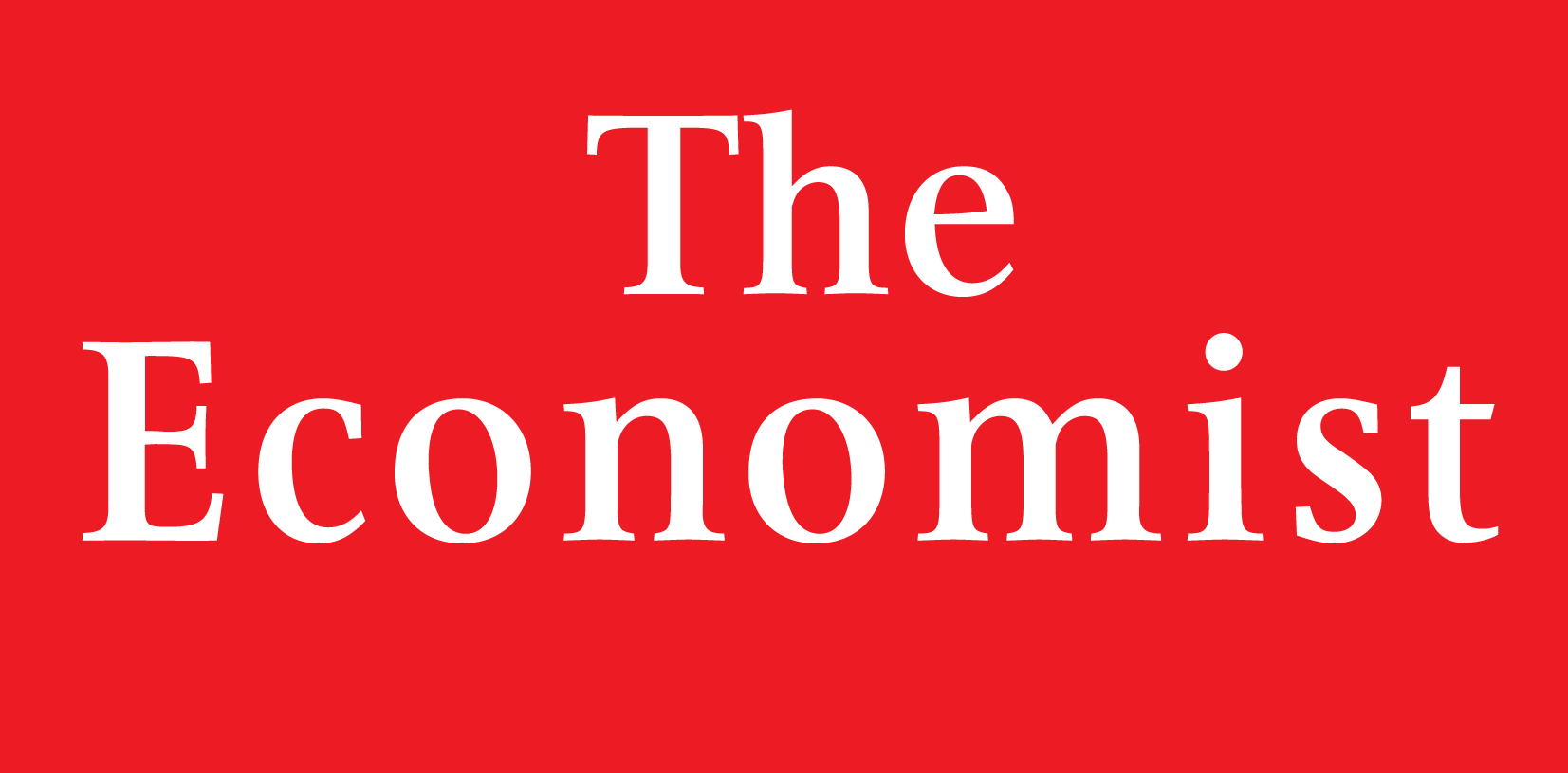
Bridging the Digital Divide to Engage Students in Higher Education
(EIU Microsoft Education, December 2020)
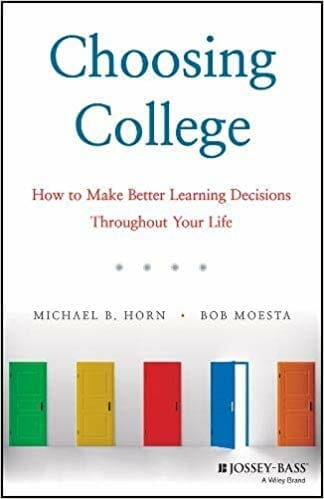
Choosing College: How to Make Better Learning Decisions Throughout Your Life
(Jossey-Bass, September 2019)
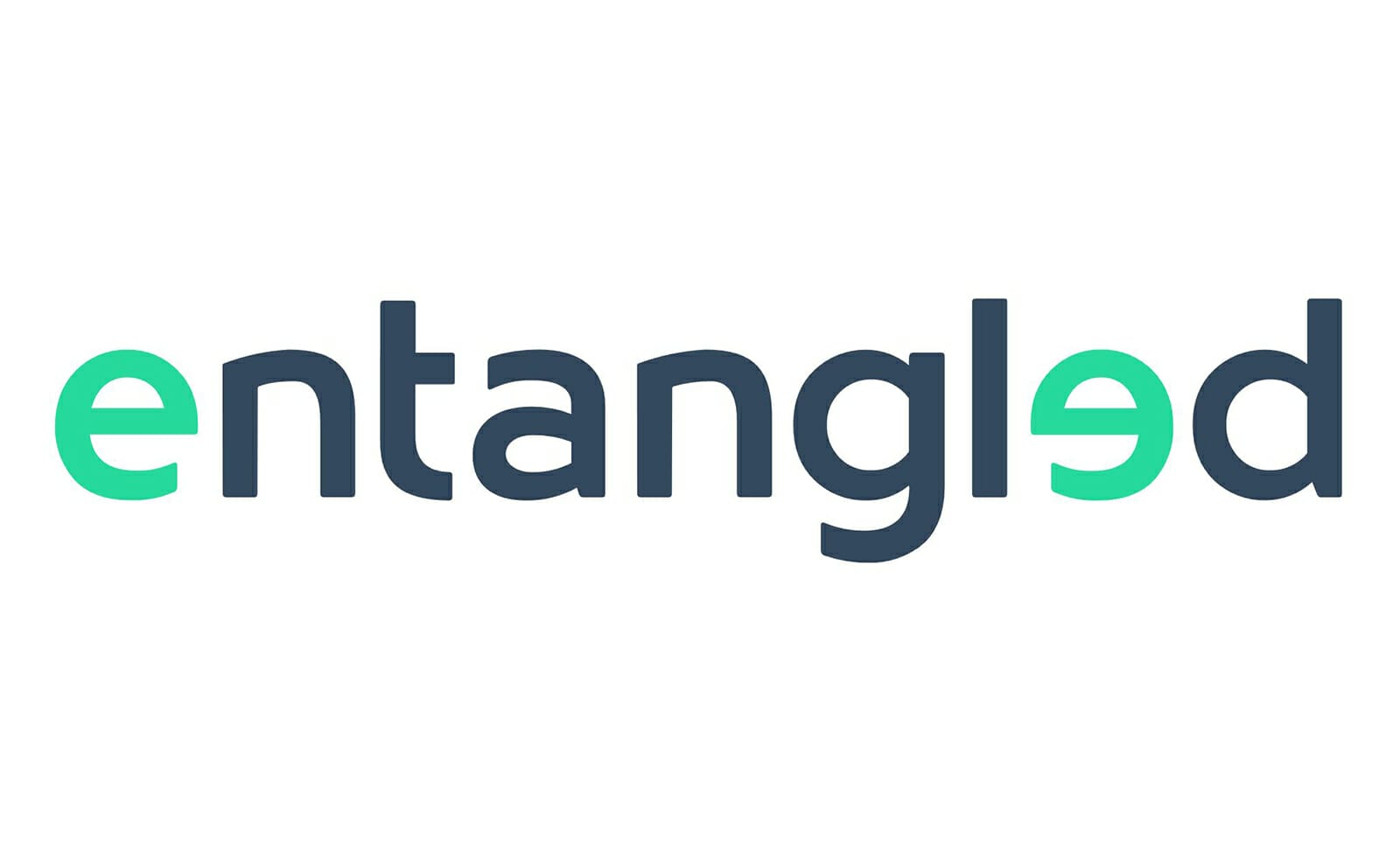
The Future of Student Aid: Advancing New Models to Expand Access, Improve Quality, and Spur Innovation in Education
(Entangled Solutions, May 2017)
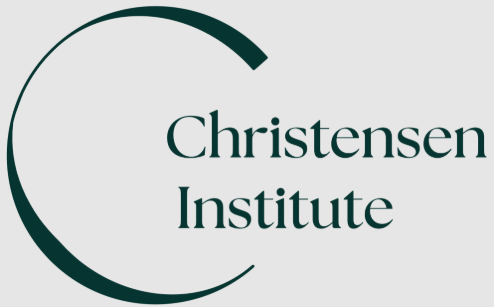
A Blueprint for Breakthroughs: Federally Funded Education Research in 2016 and Beyond
(The Clayton Christensen Institute for Disruptive Innovation, May 2016)

Disrupting Law School: How Disruptive Innovation Will Revolutionize The Legal World
(The Clayton Christensen Institute for Disruptive Innovation, March 2016)
Schools as Community Hubs: Integrating Support Services to Drive Educational Outcomes
(The Brookings Institute, September 2015)

Moving Beyond College: Rethinking Higher Education Regulation for an Unbundled World
(American Enterprise Institute, August 2015)

The Educator's Dilemma: When and How Schools Should Embrace Poverty Relief
(The Clayton Christensen Institute for Disruptive Innovation, June 2015)
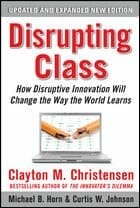
Disrupting Class, Expanded Edition: How Disruptive Innovation Will Change the Way the World Learns
(McGraw-Hill, August 2010)

Is K-12 Blended Learning Disruptive? An Introduction of the Theory of Hybrids
(The Clayton Christensen Institute for Disruptive Innovation, May 2013)
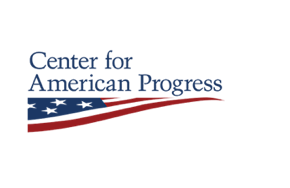
Disrupting College: How Disruptive Innovation Can Deliver Quality and Affordability to Postsecondary Education
(Innosight Institute, February 2011)

Rethinking Student Motivation: Why Understanding the 'Job' is Crucial for Improving Education
(Innosight Institute, September 2010)
How to Create A Human-Centric Talent Development System
Finding elite talent is becoming more competitive than ever, and to get the best people in an organization, leaders, especially those in HR, need to take a different approach that considers both sides of the equation, says Harvard Graduate School of Education Lecturer Michael B. Horn. Drawing from his groundbreaking new book, “Job Moves,” Horn offers leaders a fresh perspective on adapting to “the Great Attraction.” His advisory sessions reveal how to create human-centric talent development systems that resonate with the aspirations of today’s workforce.
Horn’s expertise in upskilling, reskilling and reimagining career progression equips organizations to foster environments where elite talent thrives. Through personalized advisory sessions, leaders learn to craft individualized career pathways, integrate side hustles into career development, and apply thoughtful coaching techniques. Horn’s actionable insights turn the traditional employer-employee dynamic on its head, promoting a culture of empowerment and purpose.
Available for one-on-one consultations or group sessions, Horn tailors his approach to meet organizational needs, ensuring leaders can effectively attract, retain and empower top talent in a changing world.
Building Human-Centric Talent Development Systems
To get ahead, you need a great team, and in a changing job market, it’s critical to understand how elite talent thinks to attract and retain them. Michael B. Horn’s workshop, which draws on his latest book “Job Moves,” brings leaders a new perspective on what he terms as “the Great Attraction.” This workshop equips leaders with strategies to shift from traditional, organization-centric succession planning to a more human-centric talent development system.
Attendees will learn how to replace outdated ladders of progression with individualized pathways, enabling employees to define their own progress. Horn reveals how embracing side hustles, fostering “patchwork careers” with multiple pathways and the importance of thoughtful coaching can transform organizational culture. Through engaging discussions, case studies and interactive exercises, leaders will discover practical solutions for creating roles that align with the motivations and strengths of their workforce, significantly boosting talent attraction and retention.
By the end of this workshop, attendees will be equipped with the knowledge to overhaul the manager-employee relationship, ensuring their organization thrives by empowering individuals to build lives of purpose, both in and out of the office.
Click here to learn more about Horn’s Blended Learning Strategy workshops.
Praise for "Choosing College"
“Choosing College with its deliberate frame of employment-centric concepts used to take a fresh look at the confusing and opaque world of life long learning and higher education choices resonates with me as a parent of three college-aged daughters, an education executive, a former college instructor and a public policy wonk. Since the Great Recession, consumers of education (primarily parents and students) have increasingly sought tangible information on the return on their education investment. Yet, nowhere has that been harder to find, than in the college admissions process. Horn and Moesta bring a new and timely framework to this vital decision-making process and families, like mine, as well as education leaders across many disciplines and sectors will find their insights applicable to the critically important life-long learning sector.”
“Choosing College is a great guide for families and students to navigate the very complicated river of life at the college selection stage. Like a seasoned set of river pilots, Horn and Moesta guide you through the twists and turns and help keep you off the sand bars of stress. This book helps you to find “your” way as there is no “the” way. It is a great personal guide to a very complex process.”
“This book is not a guide to college selection. It’s a thoughtful and clear pathway for all learners to make the best decisions about who they are, what they want to do and what schools, colleges and universities should provide to help them get there.”
“’Choosing College’ tackles one of the most complex and foundational decisions facing society today. Michael Horn and Bob Moesta go beyond dissecting the decision and formulating a return-on-investment. They frame a systemic approach to assist the reader in making a customized decision that is best for every individual. The break-through approach is the application of the popular innovation methodology (jobs-to-be-done) as a means of providing the reader with a pragmatic step-by-step model to make the most informed choices for their unique situation. As a business leader, an education advocate and a father, I found myself completely immersed in the content and in the resolution. I highly recommend this book to anyone contemplating the value and choices of pursuing continuing education.”
“By focusing on the different reasons why students choose to go to college, Michael Horn and Bob Moesta offer an entirely fresh approach to coping with the admissions process. Learners contemplating further education at every stage of life will gain important insights from this book. So will educators who wish to serve their students better.”
“Does the world need yet another college guide book? It most certainly needs this fresh and insightful book from Michael Horn, who eschews the usual catalog of college profiles and instead focuses on the prospective student and the jobs they need college to do for them. Based on research, thousands of student profiles, and informed by a deep understanding of higher education, ‘Choosing College’ should be read together by students and their families and used as a way to frame the often fraught conversation about choosing the right college. Choosing the right college remains an often befuddling and irrational process. This book changes all that not because it provides better answers. It provides better questions and that’s what has long been needed. If you are considering college, this should be the first book you read. It may be the only one you’ll need.”
“This is a friendly, pragmatic, accessible guide demystifying what is an often intimidating and stressful decision attended by an intimidating and stressful process. The authors focus on self-knowledge and the all-important personal “why”—why college, why now, why a particular type of institution, etc. rather than the elitist, extrinsic agenda-driven approach of too many college guides. I wish we’d had this book when our children were making their higher education decisions; I wish I’d had it when I was making mine.”
“In offering 21st century advice in ‘Choosing College’ to students and parents about what to seek in a college experience, Michael Horn and Bob Moesta also lead counselors, teachers, and higher education leaders to examine what they are offering today’s applicants. Introducing “The Jobs to be Done” concept is a practical guide for sparking reflection, relevance, and renewal across the teaching and learning spectrum. I found how Horn and Moesta provide personal human stories on top of extensive data to be extremely effective driving home key points. This book provides an engaging approach to students and parents making critical decisions about college; even better, it pushes higher education leaders to make decisions that will sharpen their institution’s relevance to learners with different needs. And for policymakers confronting tough decisions about higher education, ‘Choosing College’ is a good starting point for matching how well a state’s institutions are meeting today’s student and workforce needs.”
“The strength of American higher education is that it provides so many pathways, but this rich tapestry of options can appear to students as confusing and stressful. Students seeking clarity and a way to connect learning and further education to their current circumstances and life goals will benefit by using the “Jobs to be Done” framework of Horn and Moesta. Colleges and universities can also gain insights from exploring this framework as a new approach to understanding how learning experiences and student life circumstances can better connect.”
“Too many books focus on how to get into college without starting with the more fundamental question: Why are you going and how will you make it count? Horn and Moesta have developed a powerful framework to help students and the adults who support them, putting purpose and agency at the heart of the college decision process. And the world will be better for it!”
“Choosing College removes the mystery around educational choices and provides a framework to help people deeply understand why they are considering more education…this book gives them the knowledge and tools to make the right life decisions. This is a critically important and timely work that should be read by all who want to advance their lives through learning.”
“Horn and Moesta shed novel light on what is really at work when students choose college. By helping us all focus on what we really seek from college and therefore what really matters to us, they open up rich new terrain for thinking better about one of the most important, and often expensive, choices we make. As a parent, this book helped me rise above brand chasing towards smart matching. As a leader in higher education, this feels like a needed wake up call at a crucial moment in history to setting mission and focusing priorities for institutions to move beyond trying to be all things to all people.”
“Choosing to attend or return to college is a critical life decision. Students “hire” a college to do many things. But many prospective students don’t fully recognize the criteria on which to make their choice. Sometimes educational “jobs-to-be-done” are well understood and sometimes they are more tacit. Michael Horn and Bob Moesta have captured and articulated the jobs students hire a college to do in a compelling and intuitive way. Better understanding these jobs can more effectively inform student choice. It can also better inform how colleges and universities can serve students and the jobs they are hired to do through their education. This book is as helpful to the prospective student as it is to the university administrator. Choosing College provides a significant contribution to the work of higher education and our collective efforts to better serve students.”
“Michael Horn and Bob Moesta deliver insight after insight about why students choose college… and how to serve them better. “Choosing College” is a roadmap for leaders in the new world of higher education.”
“For almost every individual, the question of college – whether to go, where to go, what major – is one of those life-changing decisions? And while the data continues to support the attainment of post-secondary credentials as the surest path to opportunity, the college choice is decidedly a personal one. In ‘Choosing College,’ Michael and Bob expertly apply the Jobs to be Done theory to this seminal question, resulting in an incredibly relevant and useful guide for individuals, and those that support them, to evaluate their own reasons and purpose for attending college. It further highlights how and why different learners need different models and options to be successful. The research, personal stories, data and conclusions weave a compelling narrative, whether you are a first-time, returning or continuing learner.”
“College is still one of the greatest avenues to personal opportunity in the world. But the stakes now are higher, and the financial investment demands that we make good choices about where and how to pursue education. There is no better guide than the thoughtful and insightful Michael Horn to help us understand what matters in college, what we can expect from a degree, and how to make the most of the college experience. If you are looking for one book to guide your choice, start here!”
“In ‘Choosing College,’ Michael Horn and Bob Moesta dive into the complexities of making learning decisions and emerge with clear, compassionate guidelines for both learners and educators.”
“Michael Horn and Bob Moesta offer sensible and compassionate advice for students and parents alike. By reframing the college choice to focus on the actual reasons that people pursue a degree, ‘Choosing College’ cuts through the mountains of rumor, hype, and sheer misinformation that typically surround this important decision. ‘Choosing College’ is clear, concise, and well-informed.”
“Michael captivated Indiana educators, business leaders, and community members at the IACTE Summit November 7 – 8, 2019. Michael’s thought-provoking and innovative presentation gave all of us something to think about as it relates to creating new educational models, coaching educators, and transparency vs. accountability. Although Michael shared challenges, he also shared some innovative practices and solutions that were well received in Indiana. More people need to hear and learn from Michael B. Horn.”
“Michael is a pro when it comes to how technology is shaping the future of PK-12 education. As a speaker, he does his homework, he is easy to work with, he manages technology with ease and he responds to audience questions thoughtfully. He was well received as both a keynote speaker and webinar thought leader. We look forward to working with him again in the future.”
“The attendance at the 2015 Niswonger Foundation School Success Symposium was the largest ever. Comments from our teachers and administrators have let us know they are talking and making plans to use personalized learning in their classrooms. Michael opened the door to new thinking and answered many questions. It was amazing for our educators to hear the local, state, and national views on personalizing learning for our students.”
















